Co-creator Justin Marks explains the fate of Cosmo Jarvis’ John Blackthorne in Shōgun episode 10 after the episode’s flash-forward scenes.
Shōgun co-creator Justin Marks breaks down John Blackthorne’s (Cosmo Jarvis) fate in episode 10 after the flash-forward scenes. After nine acclaimed and moving episodes, FX’s historical drama came to an end this week with episode 10, concluding the story of Lord Toranaga (Hiroyuki Sanada) and Blackthorne (Cosmo Jarvis). The episode features what appear to be flash forwards to Blackthorne as an old man in England, but it’s then revealed that these scenes are the character’s own visions and not what actually comes to pass.
In a recent interview on FX Network’s Shōgun: The Official Podcast, both Marks and Jarvis share their thoughts Blackthorne’s Shōgun series finale fate.
While Marks touches on the impact of Blackthorne’s visions of himself as an old man, Jarvis offers more insight into the character’s crucial decision when he attempts to commit seppuku. Read their full comments below:
Blackthorne, through this entire story, has been a prisoner of his own ambition, which one might call the disease of colonialism, or even capitalism almost, too. But this idea of a man who is so bound by his ambition and his own sense of where he belongs in this world, and what is owed to him that he is the worst prisoner of all. So is Yabushige. They’re both like this…
But for Blackthorne, it revolves crucially around this idea of what we call the false dream. We wanted to open this episode with what feels like the beginning of a flashback structure where we jump forward into the future and we meet Blackthorne as an old man and we tell the story of an old man looking back with regret on the life that he led.
Only to realize that that was not the dream of an old man looking back, it was actually the dream of a young man looking forward to one possible version of his life. A version of his life that he has to draw to an end by killing that path. What Blackthorne is trying to kill there is not himself, it’s the version of himself that he’s always been.
And when Toranaga knocks that knife out of his hand and then looks down at him, he’s looking at a man reborn now to a completely different life.
Jarvis: When we first meet him, he’s totally obsessed with the possibility of control. But after months of trying to achieve something significant in Japan with regard to his English persona and position in English society and being sort of subdued by the people around him, some aspect of the country and its customs, and the peripheral sense of greater honor and duty and the impermanence of life and the futility of fighting fate and the possibility of meaningful death allowed into him by Mariko’s death and the destruction of his ship.
In episode 10, he, for the first time, is compelled to attempt something that is objectively purposeful in an honorable sense and totally selfless and has nothing to do with his long-established aims. So, I don’t think he saw his arc coming, but he does arrive at one.
He’s sort of liberated by being forced into a situation where he no longer has anything that he is attached to. And when that happens, he is then capable of trying something else, so he does.
Why Blackthorne’s Shōgun Fate Feels So Earned
Cosmo Jarvis’ Character Has A Long Journey
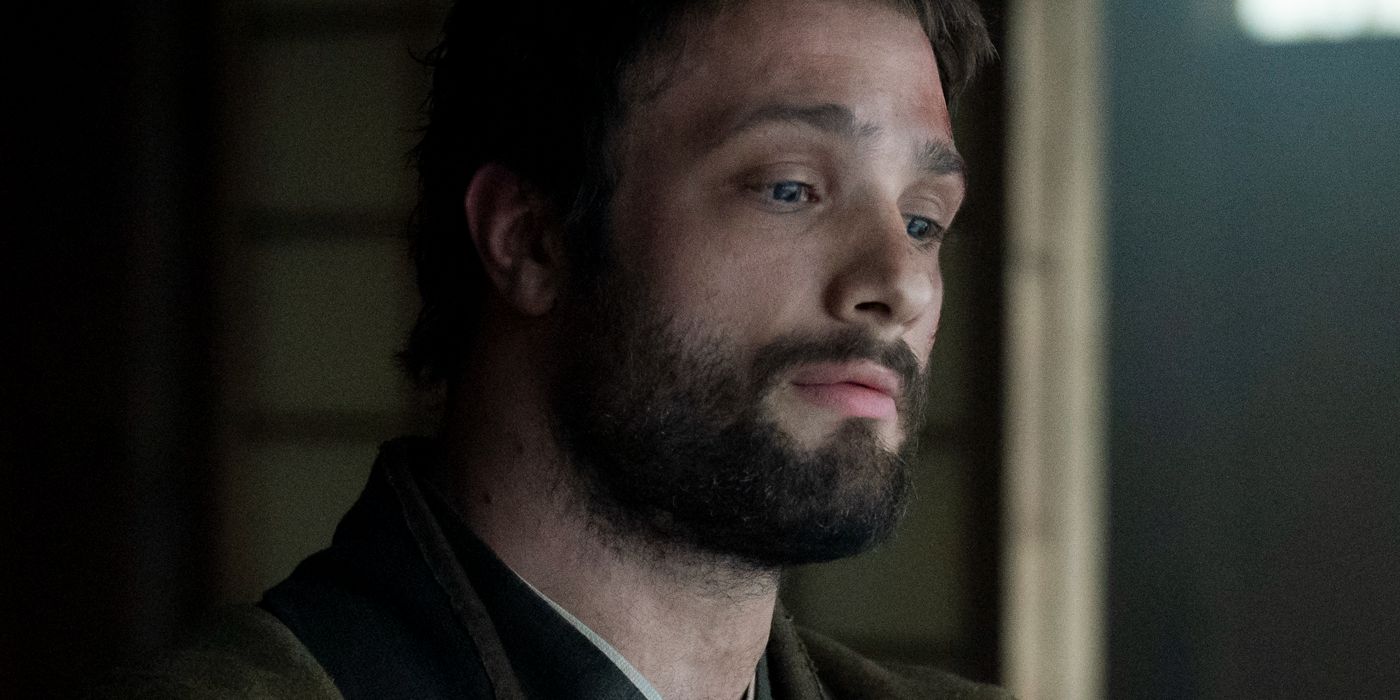
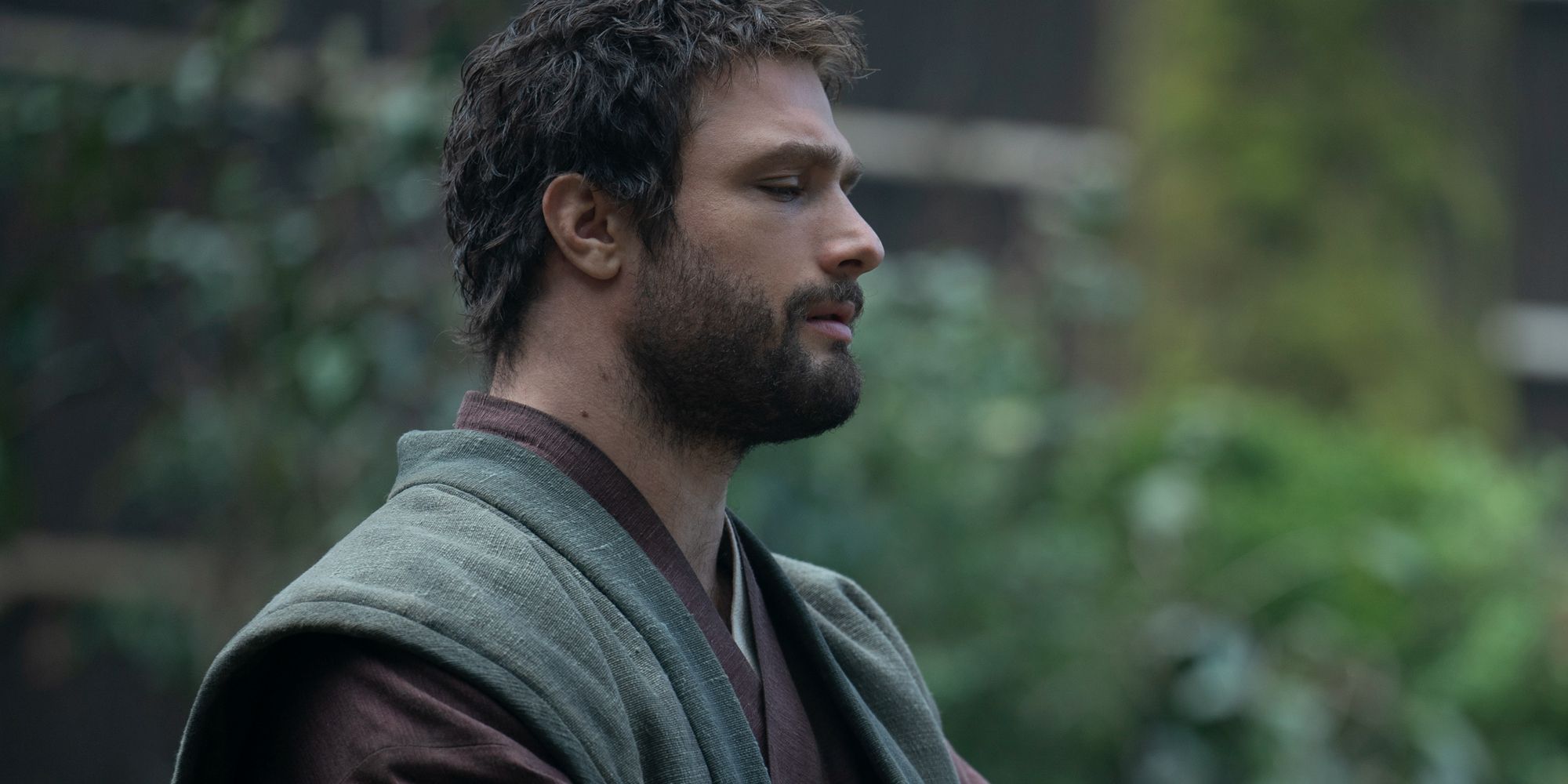
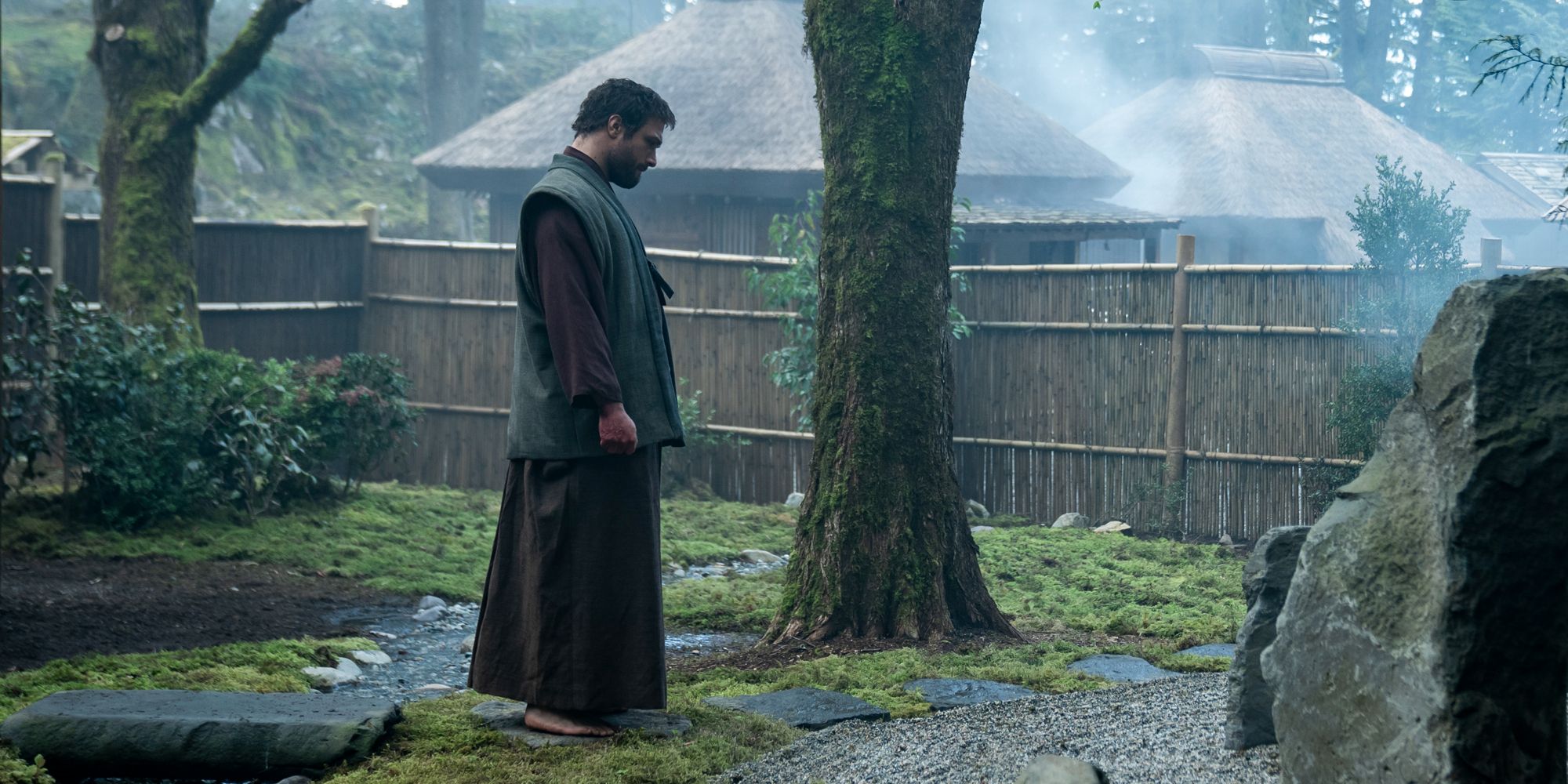
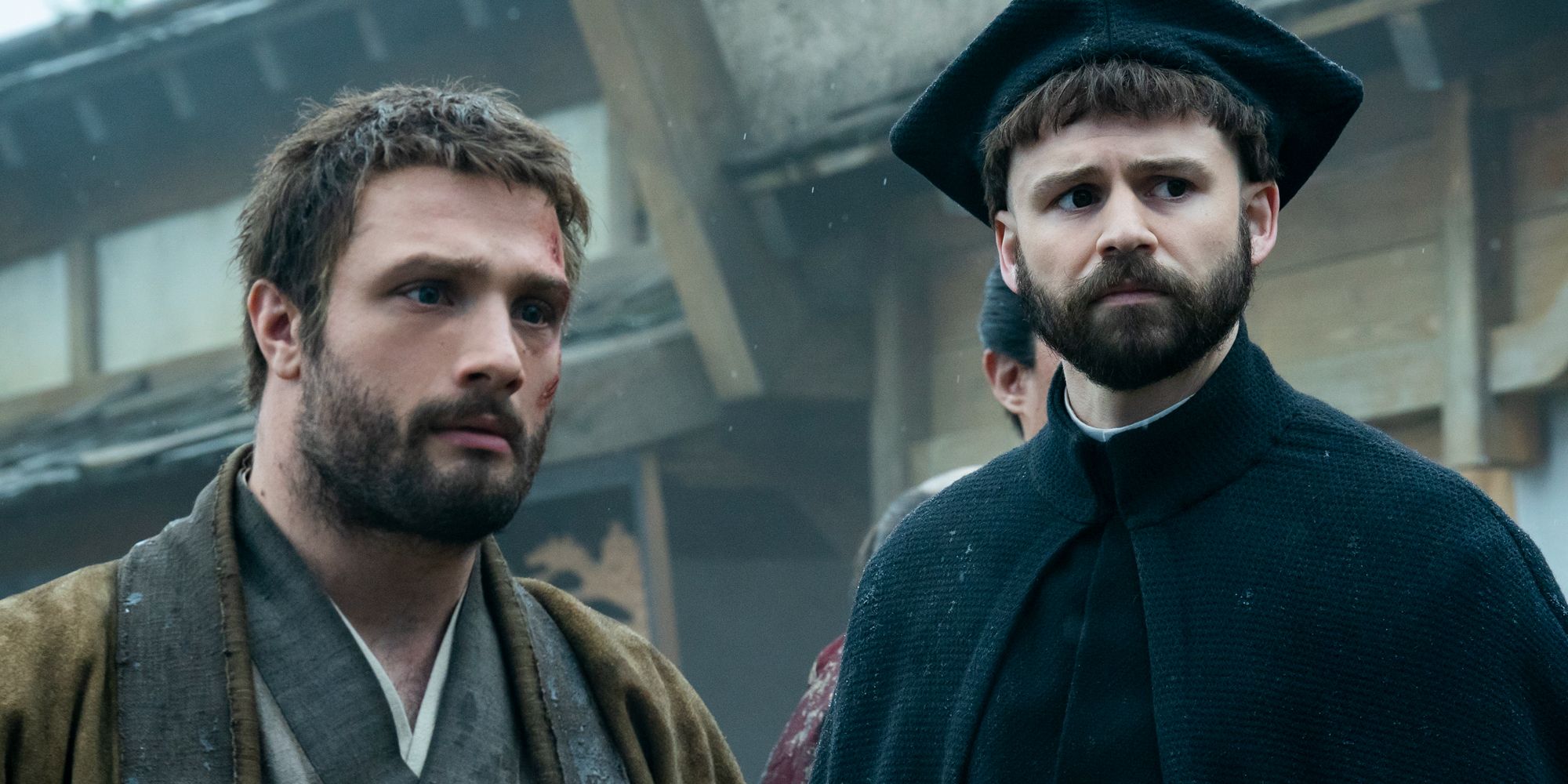
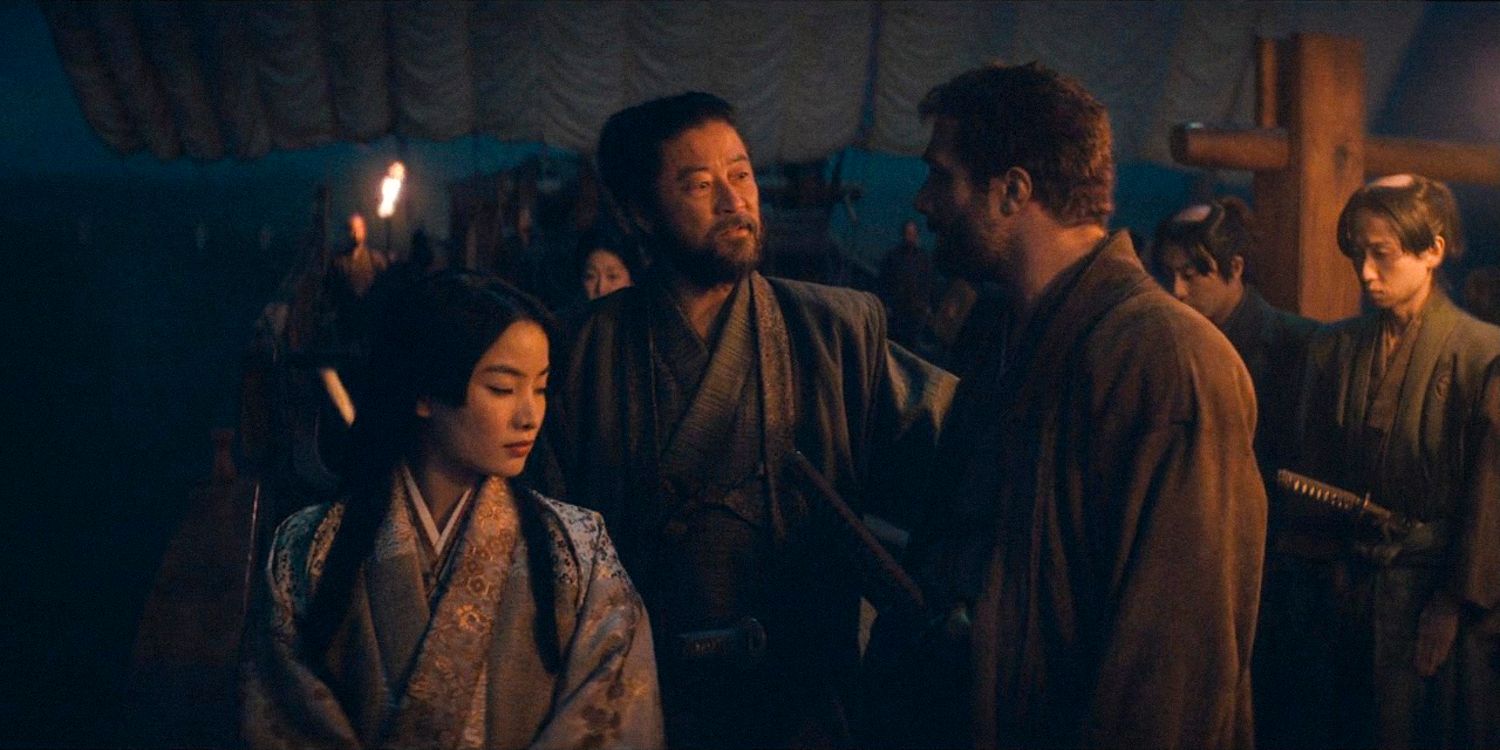
One of the reasons why the Shōgun reviews have been so overwhelmingly positive is because the show’s writing deftly balances such a large cast of characters. Blackthorne is the fish-out-of-water character in the story, acting as an audience stand-in, in a sense, as the intricacies of Japanese samurai culture are fleshed out and explored. Jarvis’ character is more than just the audience’s way into this world, however, and his arc ends up playing out over 10 episodes.
His willingness to commit seppuku speaks to his full acceptance of Japanese customs and his new understanding of the value of life and death.
Throughout the series, Blackthorne is often shocked at how the rest of the Shōgun cast of characters treat death. It’s foreign to him, for example, that someone would commit seppuku after dishonoring their lord of their family, and he expresses his frustration repeatedly throughout the show. Blackthorne also sees his time in Japan as temporary, and he is constantly striving to regain control of his ship and sail against his Catholic enemies, even as he develops an affinity and respect for those around him and their culture.
In the Shōgun finale, as villagers are killed for the destruction of Blackthorne’s ship, he offers up his own life instead to stop the bloodshed. His willingness to commit seppuku speaks to his full acceptance of Japanese customs and his new understanding of the value of life and death. It’s unclear exactly what awaits Blackthorne in life following the Shōgun finale, but it’s clear that he will not grow to be an old man with regret.





